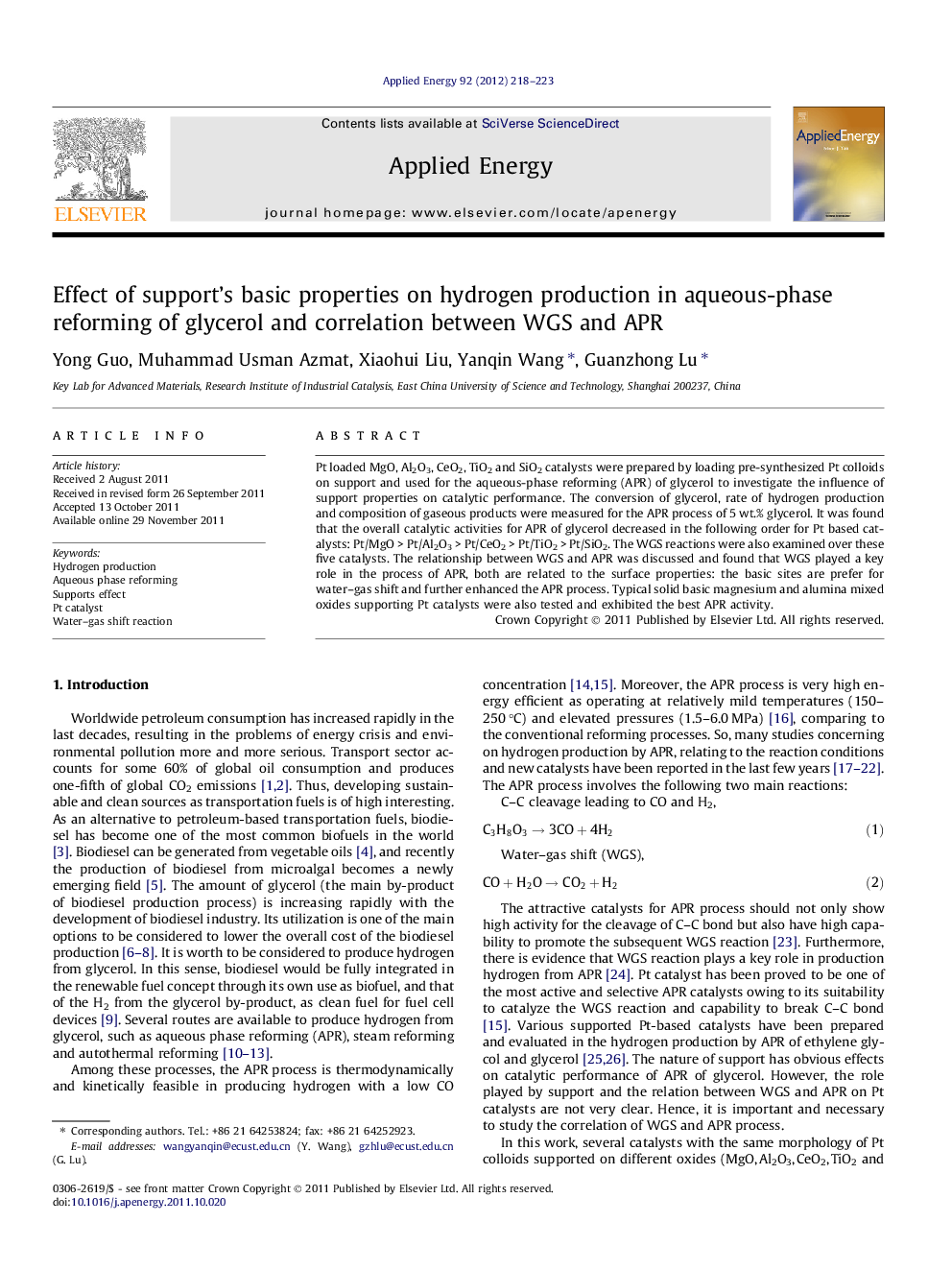| Article ID | Journal | Published Year | Pages | File Type |
|---|---|---|---|---|
| 243597 | Applied Energy | 2012 | 6 Pages |
Pt loaded MgO, Al2O3, CeO2, TiO2 and SiO2 catalysts were prepared by loading pre-synthesized Pt colloids on support and used for the aqueous-phase reforming (APR) of glycerol to investigate the influence of support properties on catalytic performance. The conversion of glycerol, rate of hydrogen production and composition of gaseous products were measured for the APR process of 5 wt.% glycerol. It was found that the overall catalytic activities for APR of glycerol decreased in the following order for Pt based catalysts: Pt/MgO > Pt/Al2O3 > Pt/CeO2 > Pt/TiO2 > Pt/SiO2. The WGS reactions were also examined over these five catalysts. The relationship between WGS and APR was discussed and found that WGS played a key role in the process of APR, both are related to the surface properties: the basic sites are prefer for water–gas shift and further enhanced the APR process. Typical solid basic magnesium and alumina mixed oxides supporting Pt catalysts were also tested and exhibited the best APR activity.
Graphical abstractThe APR activities of Pt based catalysts decrease as follow: Pt/MgO > Pt/Al2O3 > Pt/CeO2 > Pt/TiO2 > Pt/SiO2, which agrees with the degressive sequence of basicity of supports.Figure optionsDownload full-size imageDownload as PowerPoint slideHighlights► The catalysts with the same Pt loading and dispersion are synthesized. ► The APR of glycerol is more favorable on stronger basicity supported catalyst. ► The catalyst providing a higher ability of WGS shows a better APR activity. ► It is proposed WGS reaction is the key role of the APR of glycerol.
